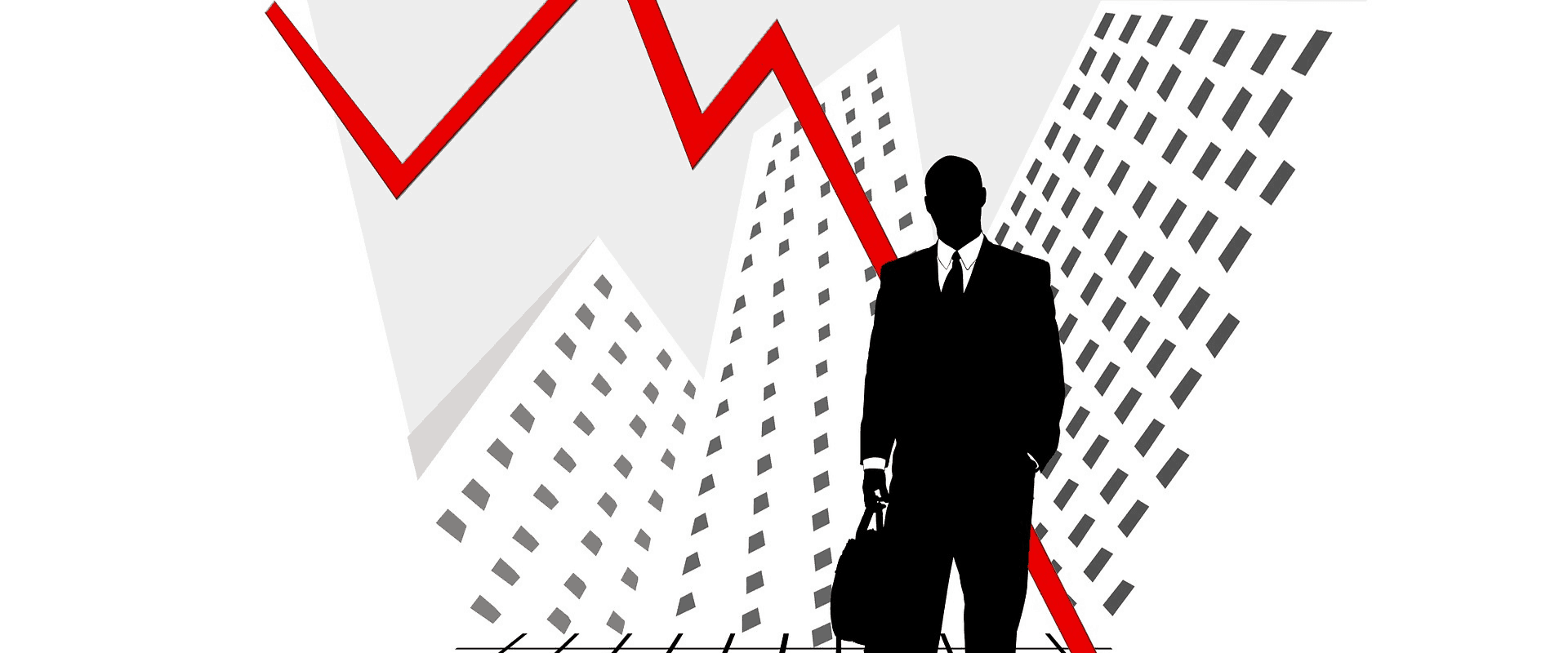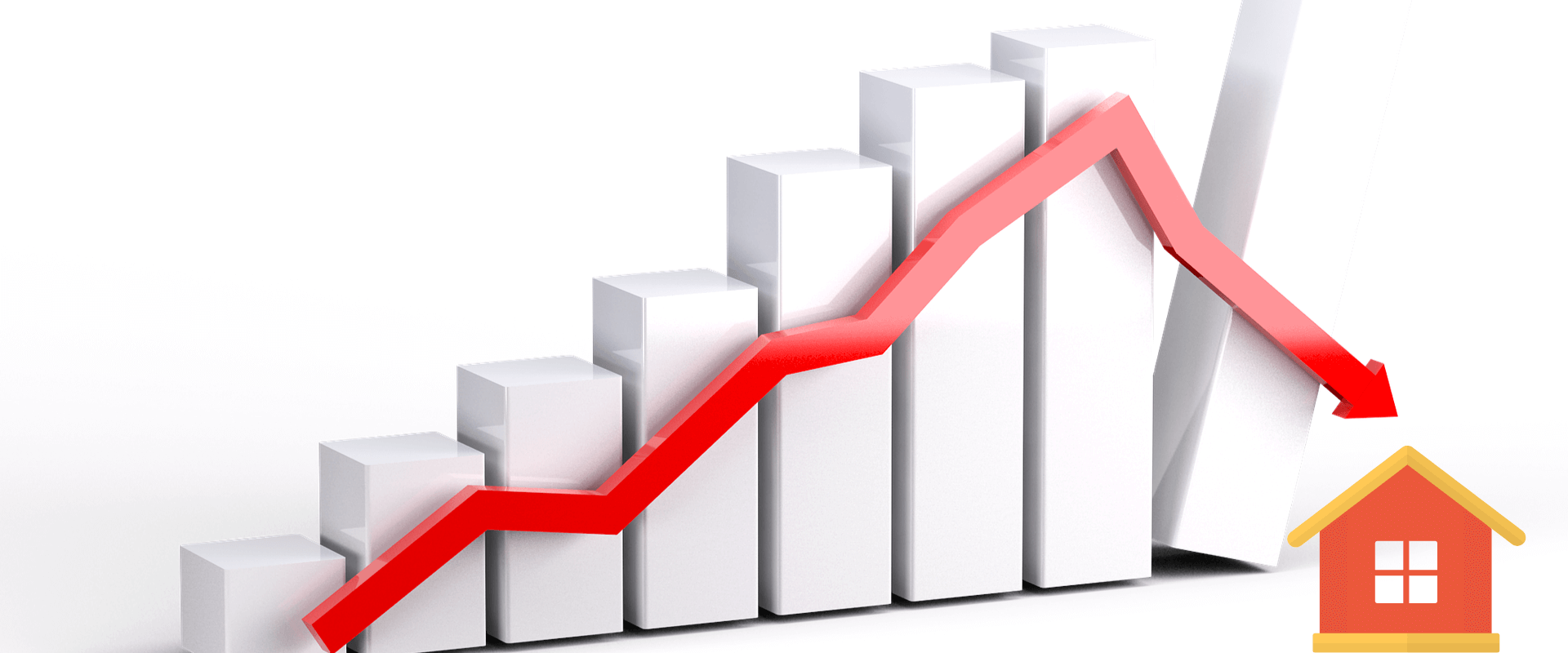It’s been over a decade since the last major recession, but the sirens are blaring again. A recession comes with industrial shutdowns, low production, brutal downsizings, a nose-diving stock market, and a housing market crash.
The country saw a serious housing recession in 2008-2009, when the housing bubble finally burst and pushed the country into an economic downfall. At its worst, the average housing prices didn’t go down as much as people expected. From the peak value in 2007 and the bottom-most in 2009, the average sales price of houses sold in the US went down 20.3%.
So does that make buying a house during a recession a smart move? Similarly, is selling a house during a recession a bad financial decision? If you are planning to wait for a recession before buying or selling, you should be aware of the risks of buying a house during a recession.

Housing Recessions
The previous market crash has many people believing that the next recession will also be triggered by a housing bubble burst. This means that an over-inflated housing market will cause the economy to collapse. If the housing market becomes the trigger for an economic collapse, we might see another housing recession.
Even if the housing market is not the driving factor, the house prices will take a hit if the recession hits. The home values have seen a serious price increase since 2012. Houses were at an average cost of $170k and are now averaging around $250k.
So affordability has become a real issue. This is one of the major reasons prospective home buyers are waiting for a housing recession.
Realistic Price Drops
Many home buyers expect the prices to totally tank during a recession, but that’s not how it works. Very few people prefer selling a house during a recession, especially the ones who have paid off their mortgages.
They have no reason to sell when the prices are all-time low. Most people who put their house for sale anticipating a recession, do so just before the market starts to go down. These people expect to get the most out of their property before its worth is slashed to 4/5th of its current value.
When the recession hits, don’t expect to find cheap homes popping up everywhere. The house prices right now are high, but not overly inflated. On average, home buyers might not see a lot of price depreciation in a recession.
The case varies with the location as well, with most thriving urban markets seeing larger price drops than some steady markets in the country. One of the reasons that the market took such a big hit last time was that builders were frantically building new houses. They had to keep up with the housing demands then, but this is not the case right now.

Mortgage and Interest Rates
During a recession, interest rates are down in general. Interest rates are chiefly controlled by the Federal Reserve and when a recession hits, people become more financially cautious.
People start using their credit cards sparingly and they don’t take out new loans and focus on saving. This affects the whole economic cycle.
Interest rates are lowered to encourage people to spend more and take out loans, to pump money back into the banks.
This is one thing you can use to your advantage during a recession. If you manage to get a fix-rate mortgage at a much lower interest rate at the time of recession, you are in luck. Because even if the house you are buying didn’t drop a dollar in price during the recession, you will end up paying much less because of the mortgage you took.
You’ll need to make sure you are financially backed and secure in your job and business because no matter how low the mortgage is, you still have to pay it. Which is something you won’t be able to if you are laid off or your business crashes due to the recession.
Adjustable Rates
Taking out an adjustable-rate mortgage during a recession is a bad call. The market does stabilize in usually a couple of years and interest rates start to climb up, so you could be paying more over the years than those that did not want an adjustable rate.
Avoid the potential risks of buying or selling in a recession. Find an agent now.
Researching the Market and Location
If you have decided to take advantage of a housing recession, it is important to properly research the market. The houses that have been sitting on the market might get you a lucrative deal.
There can be a risk in buying a house simply because it was cheap during the recession, and not in a good shape, or in a neighborhood you want to live in, might not be a good idea.
You should also research for best mortgage deals and how the larger and more conventional banks won’t offer very lucrative fixed-rate mortgages during a recession. Make sure you choose someone reputable and dependable when you are looking at mortgages.
Since a lot of people will be trying to score a good deal in a recession, make sure you stay ahead of the competition. That means pre-approved mortgages and down payment at the ready. Make sure the property you are going for has a clear title. If someone other than the owner owns a piece in the property, there might be problems when you try to transfer it to your name.
Conclusion
The house prices do decrease in a recession, but not as much as you might’ve hoped. You can always do some planning with a top realtor, you can avoid the risks of buying a house during a recession.
You can still get a great deal because they know the market so well, but it’s important to have realistic expectations. There are plenty of opportunities, even from a market suffering through a recession.
In any case, you should be well prepared before you start hunting for a house in a recession.
When you are ready to start looking for homes and seeking a trusted neighborhood expert to help, please call us at 352-686-0000.
Source: http://blog.rismedia.com/2018/buy-house-switching-jobs/

No Comments